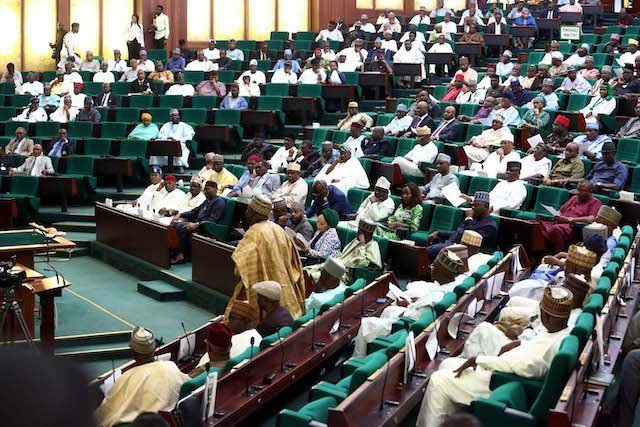The bill seeks to amend the Coastal and Inland Shipping (Cabotage) Act 2003 (“the Principal Act”), to include oil rigs as a vessel, within the meaning of a vessel under the Act, and subject to every other provision of the Act relating to vessels
HomeAuthor admin-sskohn
ArticlesGovernanceClarifying The Data Protection Obligations Of Cloud Providers And Cloud Customers In Nigeria
It is generally assumed by some cloud customers in Nigeria that since they do not provide the cloud service, they have no compliance obligation if the cloud service is used to process the personal data of individuals in Nigeria. But as will be explained below, this is incorrect and not always the case according to the provision of the Nigerian Data Protection Regulations 2019 (NDPR) issued by the National Information Technology Development Agency (NITDA).
The Warsaw Convention 1929 was extended to Nigeria by the British colonial government via an order known as the Carriage by Air (Colonies, Protectorates and Other Trust Territories) Order 1953. This Order was repealed by section 77 (1)(a) of the Civil Aviation Act 2006 (CAA 2006). Prior to its repeal, the applicability of the Warsaw Convention as the basis for determining air carrier liability was upheld
Streamsowers & Köhn is happy to have acted as counsel to EbonyLife Studios on its collaboration with Sony Pictures Television on the creation of ÀLÓ; a brand new writers'. The initiative which offers a new avenue of expression to writers of African heritage...
The Electric Power Sector Reform Act, 2005 (EPSRA or “the Act”) is the principal legislation governing the structure and ownership of enti ties in the Nigerian Electricity Supply Industry (NESI). The EPSRA was passed for the purpose of unbundling the existing vertically integrated and state-owned Nigerian Electricity Power Authority (NEPA), creating an independent reg ulator for the industry – the Nigerian Electricity Regulatory Commission (NERC) – and achieving market liberalisation. The Act introduced several reforms including:
Tax disputes in Nigeria are primarily resolved by the courts and the Tax Appeal Tribunal (TAT). The Constitution of the Federal Republic of Nigeria, 1999 (as amended) and the Taxes and Levies (Approved List for Collection) Act, LFN 2004 provide for the assessment and collection of taxes by the federal, states and local governments. The jurisdiction of the courts over tax disputes derives from whether the taxes are federal, state or local government taxes. Jurisdiction over taxes administered at both the federal and state levels, such as stamp duties, is determined by the legal personality of the taxpayer and for individuals, their place of residence.
Is your country party to any bilateral or multilateral treaties for the reciprocal recognition and enforcement of foreign judgments? What is the country’s approach to entering into these treaties, and what, if any, amendments or reservations has your country made to such treaties?
The Federal High Court Port Harcourt Division recently held that the Rivers State Government and not the Federal Government is empowered to collect Value Added Tax (“VAT”) among other taxes in the State.
The bill seeks to amend the 2020 Appropriations Act and authorize the issue of the total sum of ₦10,509,654,033,053 only from the Consolidated Revenue Fund of the Federation, of which: ₦398,505,979,362 is for Statutory Transfers; ₦2,951,710,000,000 is for Debt Service;
On 24 May 2021, the Central Bank of Nigeria (‘CBN’) issued a circular on the new license requirements for the Payment Systems in Nigeria(the ‘Circular’). This is a follow-up to its circular dated 9 December 2020 issued...












